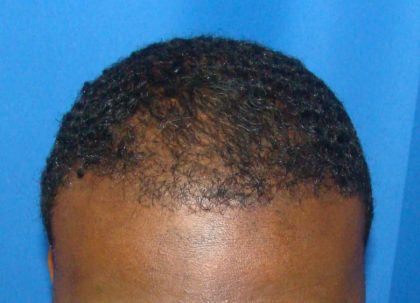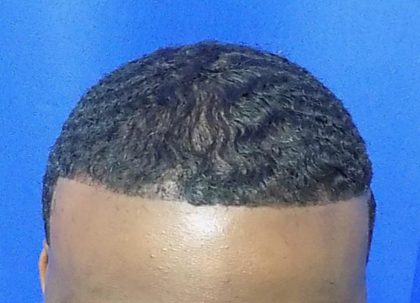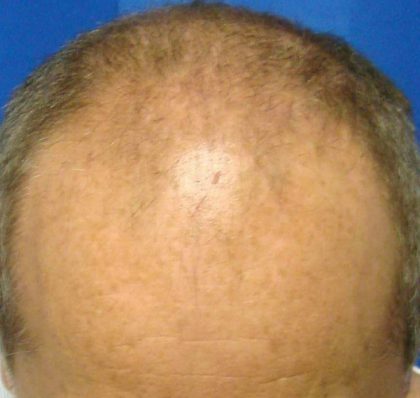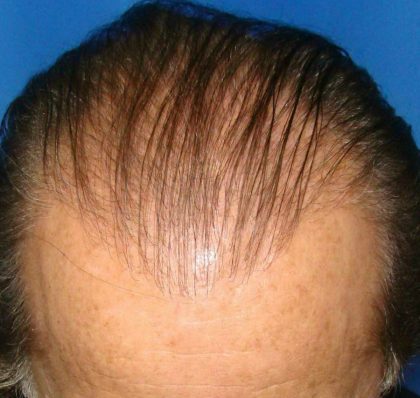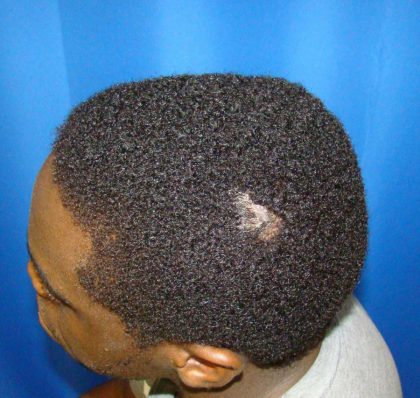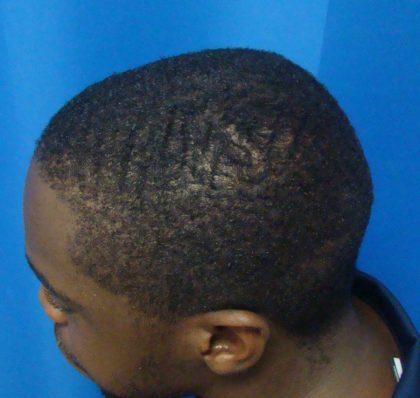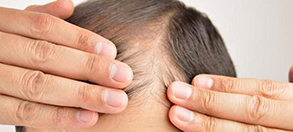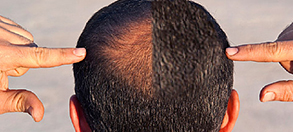A hair transplant is a highly effective solution for individuals experiencing hair loss. Many people wonder if there are age limits for undergoing this transformative procedure. While there are no absolute age limits, it is important to consider several factors before choosing a hair transplant, especially if you are under the age of 25.
At Houston Hair Transplantation Center (HHTC), Dr. Goran Jezic and his team of hair transplant experts understand the unique concerns and aspirations of each patient. We prioritize patient safety and satisfaction above all else. When it comes to hair transplants, we carefully evaluate each individual’s suitability for the procedure based on their specific circumstances.
If you are considering a hair transplant, contact Houston Hair Transplantation Center at (713) 864-2300 or complete an inquiry form to schedule a consultation with Dr. Jezic. Our compassionate and experienced team will provide you with the personalized care and attention you deserve on your journey to restoring your natural, youthful hairline.
Before and After Photos
When is the Right Time for a Hair Transplant?
When considering a hair transplant, it is important to understand the factors that can affect eligibility and ensure optimal results. Hair loss can occur at any age due to various factors such as genetics, hormonal changes, medical conditions, or trauma. And, while age is not the sole determining factor when it comes to getting a hair transplant, it is vital to have realistic expectations about long-term results and potential future hair loss.
Hair transplants, such as follicular unit extraction (FUE), involve surgically relocating hair follicles from one area of the scalp to another. Therefore, considering the stability of your hair loss pattern and understanding the likelihood of future balding is crucial for optimal results.
Younger Patients
Since hair loss patterns and progression can vary significantly during the late teens and early twenties, it is essential to allow ample time for the hair loss to stabilize before considering a hair transplant. Prematurely addressing hair loss with surgery may result in suboptimal outcomes and the need for additional procedures in the future. For this reason, most hair transplantation surgeons recommend undergoing surgery after the age of 25. (1) However, those who undergo hair transplants in their early twenties into their thirties would be well-served by adopting a topical regimen of minoxidil/finasteride combined with oral intake of zinc and biotin among other supplements to preserve existing hair.
Older Patients
Contrary to popular belief, there is no upper age limit when it comes to hair transplant procedures. Nobody is too old to undergo a hair transplant, as long as they are in good health and have enough viable donor hair follicles. Age should not be a deterrent for individuals seeking to regain their youthful hairline or fill in thinning areas. It is not entirely uncommon for patients in their 70s and even over 80 to have a hair transplant.
However, it is crucial to consider one’s overall medical condition before proceeding with a hair transplant. Certain medical conditions may affect candidacy for the procedure, making it essential to consult with a qualified and experienced hair transplant surgeon. Patients over 65 may require a medical clearance from their primary care provider. Those with cardiac conditions or on blood thinners may require clearance as well. Transparency and open communication about your medical history is key to ensuring the success of the procedure.
Conditions That May Affect Candidacy
If you are within an ideal age range for a hair transplant, you may wonder if any medical conditions will affect your candidacy.
Diabetes
For individuals with diabetes, managing the condition effectively is vital before considering a hair transplant. Controlled diabetes should not hinder candidacy, but uncontrolled diabetes may increase the risk of complications during and after the surgery.
Cardiovascular Disease
Certain cardiovascular conditions, such as high blood pressure or heart disease, may impact the suitability for a hair transplant. A thorough evaluation is necessary to assess the risks involved and determine the best course of action. Blood pressure must be under control prior to the procedure.
Autoimmune Disorders
Autoimmune diseases, like lupus or alopecia areata, can cause hair loss and may require a specialized approach to hair restoration. Individuals with autoimmune conditions such as lichen planus and lichen planopilaris should consult with Dr. Jezic to determine if they are suitable candidates for the procedure. Dr. Jezic may recommend non-surgical hair restoration solutions for such patients.
Other Conditions
Certain blood disorders, such as hemophilia or clotting disorders, may affect the ability to undergo a hair transplant. Similarly, people with chronic illnesses, such as cancer or kidney disease, should consult their primary healthcare provider before considering a hair transplant. The underlying condition and its treatment may impact the suitability for surgery, and it is essential to prioritize overall health.
Types of Hair Restoration
FUT
FUT, also known as strip harvesting, involves the removal of a narrow strip of scalp from the donor area, typically located at the back or sides of the head. This strip is then dissected into individual follicular units, which contain one to four hairs each. The extracted follicular units are then transplanted into the recipient area where hair loss has occurred. One drawback of FUT is the presence of a linear scar at the donor site. While this scar is typically well-hidden by surrounding hair, it may be noticeable if the patient chooses to wear their hair very short.
FUE
FUE involves the extraction of individual follicular units directly from the donor area using a small punch instrument or automated device. This technique allows for a more precise and targeted approach to graft extraction, resulting in minimal scarring. The harvested follicular units are then transplanted into the recipient area, similar to the FUT procedure. FUE is particularly beneficial for patients who prefer wearing their hair short or desire minimal scarring.
How Can FUE Help Me?
Here are some advantages of FUE over FUT. (1)
- More grafts are harvestable.
- Scarring is less noticeable.
- There is less postoperative pain.
- There is a shorter recovery period.
- The surgeon can harvest specific groups of hairs.
- The surgeon can harvest hairs outside the typical donor site.
Find out about virtual consults at Houston Hair Transplantation Center here.
Who is a Good Candidate for Hair Transplantation?
Dr. Jezic may use the following framework for determining if a hair transplant is suitable for you. (2)
- Does the patient have male/female pattern hair loss?
- Is there over 50% hair loss?
- Does the scalp look healthy?
- Is the hair of good quality and quantity in the donor region?
- Does the patient have realistic expectations?
- Are there any medical conditions that could affect the success of the surgery?
Personal Consultation
At your consultation, Dr. Jezic will conduct a thorough evaluation of your medical history. He will examine your scalp, and discuss your aesthetic concerns and goals. By taking into account all relevant factors, including age, hair loss progression, and overall health, Dr. Jezic will determine if you are an eligible candidate for a hair transplant.
If you’re considering a hair transplant or want to learn more about your options, we invite you to schedule a consultation with Dr. Goran Jezic at the Houston Hair Transplantation Center by calling (713) 864-2300. Take the first step towards regaining your confidence and achieving the appearance you desire.
Benefits of FUE Hair Transplantation
- Improved self-confidence: A full head of hair can greatly enhance an individual’s self-confidence and self-esteem. By restoring a fuller and more natural-looking head of hair, a hair transplant can help individuals regain their confidence and feel better about their appearance.
- Enhanced image and appearance: Thinning hair or bald patches can significantly affect one’s overall appearance, making them look older or less attractive. With a successful hair transplant, patients can achieve a more youthful and attractive look as the transplanted hair fills in the thinning areas or bald spots.
- Permanent solution: Unlike temporary solutions such as wigs or hairpieces, a hair transplant provides a permanent solution for hair loss. The transplanted hair follicles are resistant to the effects of DHT (dihydrotestosterone), the hormone responsible for male pattern baldness, ensuring long-lasting results.
- Natural-looking results: Skilled hair transplant physicians such as Dr. Jezic have the expertise to create natural-looking results. By carefully grafting hair follicles from the donor area to the recipient area, they ensure that the transplanted hair blends seamlessly with the existing hair, creating a natural and undetectable result.
- Cost-effective in the long run: While the initial cost of a hair transplant may be higher compared to other treatments, it offers a cost-effective solution in the long run. There is no need for ongoing maintenance visits or replacement, which can save patients significant costs over time.
- Restored hairline: A receding hairline can greatly impact facial aesthetics and harmony. A hair transplant can restore a natural-looking hairline, helping patients achieve a more balanced facial appearance and framing their features harmoniously.
- Regained youthfulness: Thicker, fuller hair resulting from a successful hair transplant can make individuals look younger. Hair loss is often associated with aging, and by addressing this concern, patients can regain a more youthful appearance.
Read Dr. Jezic’s blog for more information about FUE hair transplantation in Houston.
How Much is a Hair Transplant in Houston?
Determining the cost of a hair transplant is a personalized process, as it depends on various factors specific to each patient. At the Houston Hair Transplantation Center (HHTC), we believe in providing comprehensive and individualized treatment plans to address your unique needs and goals.
We prioritize transparency and open communication with our patients. Following your consultation, we will provide you with a detailed estimate of the price of your hair transplant. Reach out to us at (713) 864-2300 to schedule your consultation with Dr. Jezic. During this consultation, you will have the opportunity to discuss your concerns, ask any questions you may have, and receive a personalized treatment plan tailored to your specific needs and budget.
References
- Zito PM, Raggio BS. Hair Transplantation. PubMed. Published 2023. Accessed August 4, 2023. https://www.ncbi.nlm.nih.gov/books/NBK547740/#:~:text=Age%3A%20The%20HT%20surgeon%20should
- True RH. Is Every Patient of Hair Loss a Candidate for Hair Transplant?—Deciding Surgical Candidacy in Pattern Hair Loss. Indian Journal of Plastic Surgery. 2021;54(04):435-440. doi:https://doi.org/10.1055/s-0041-1739247

